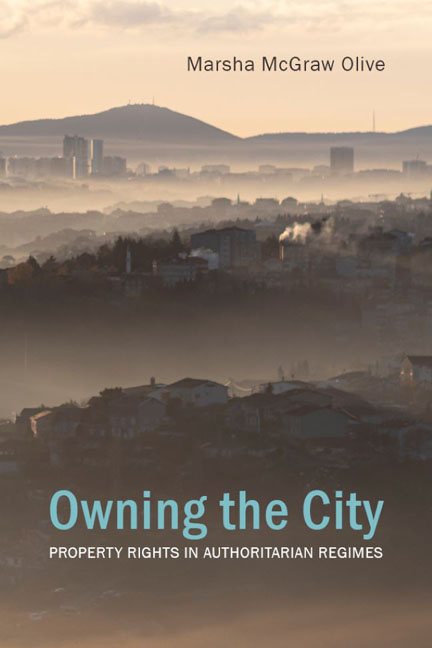Book contents
- Frontmatter
- Contents
- Acknowledgements
- List of Figures and Tables
- 1 Introduction and Argument
- 2 Globally Successful Cities
- 3 Urban Political Economy in Historical Perspective
- 4 Urban Land Governance: Liberal and Illiberal Patterns
- 5 Cautionary Tale: Moscow
- 6 Cautionary Tale: Istanbul
- 7 Conclusions and Prognosis
- Bibliography
- Index
1 - Introduction and Argument
Published online by Cambridge University Press: 20 January 2024
- Frontmatter
- Contents
- Acknowledgements
- List of Figures and Tables
- 1 Introduction and Argument
- 2 Globally Successful Cities
- 3 Urban Political Economy in Historical Perspective
- 4 Urban Land Governance: Liberal and Illiberal Patterns
- 5 Cautionary Tale: Moscow
- 6 Cautionary Tale: Istanbul
- 7 Conclusions and Prognosis
- Bibliography
- Index
Summary
What we call land is an element of nature inextricably interwoven with man's institutions. To isolate it and form a market out of it was perhaps the weirdest of all undertakings of our ancestors … [Land] invests man's life with stability; it is the site of his habitation; it is a condition of his physical safety; it is the landscape and the seasons. We might as well imagine his being born without hands and feet as carrying on his life without land. And yet to separate land from man and organize society in such a way as to satisfy the requirements of a real estate market was a vital part of the utopian concept of a market economy.
Karl Polanyi, The Great Transformation (1957 [1944])
Cities are the pulse of nations. The greatest among them – London, Paris, New York, to name a few – have long captured the imagination of historians, novelists and travellers. Yet the importance of cities as global actors and their centrality in shaping human affairs has ebbed and flowed over the centuries, along with their fortunes. Venice, the centre of Mediterranean commerce for hundreds of years, faded into a tourist haven; Lisbon, once the capital of world voyagers, lost its leadership after the 1755 earthquake; Florence, the birthplace of the Western Enlightenment, evolved into a picturesque provincial city. In more recent times Detroit, the “Motor City” capital, has been struggling to reinvent itself, like many other manufacturing rust belt cities. Others have been destroyed by war or fire, such as Berlin (1618– 48, 1945), Moscow (1571, 1611, 1812), Istanbul (1569, 1660), Tokyo (1657, 1945), London (1660) and Chicago (1871). Yet they recovered, and now thrive as twenty-first-century metropolises.
This book is about the fortunes of cities, told not from the standpoint of calamities or commerce or culture but from the shaping and moulding of urban land through the social convention of property rights. How does an invisible, intangible force over physical space affect urban life? And why should we care?
The short answer is that the way major cities govern land is a barometer of the economic and political health of any state. Governance rests on real property rights, which define the legal framework for control and use of real estate (land and buildings). As a source of wealth and power, urban real estate is an arena ripe for contestation.
- Type
- Chapter
- Information
- Owning the CityProperty Rights in Authoritarian Regimes, pp. 1 - 10Publisher: Agenda PublishingPrint publication year: 2022



